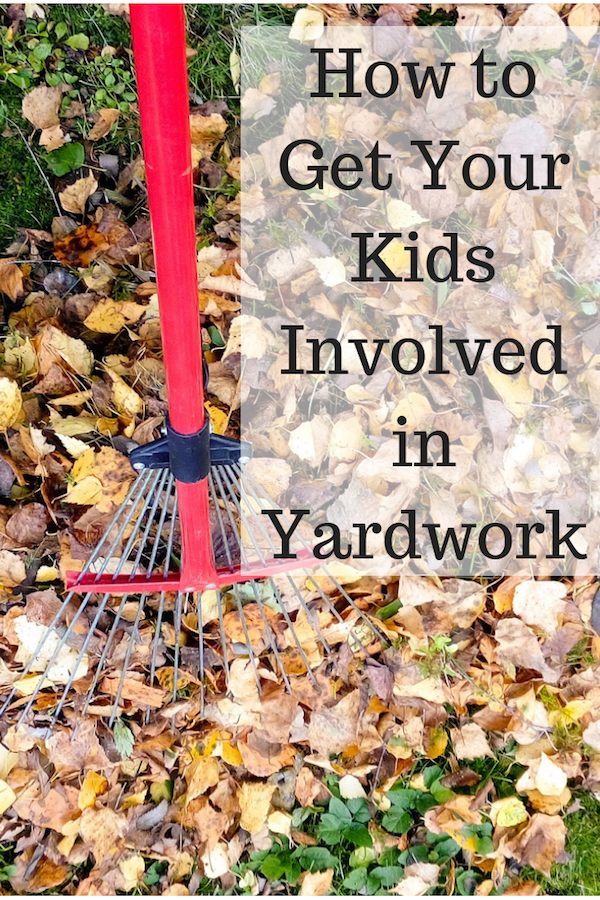
It’s easily the least fun chore, but it makes the most fun area in your house safe and beautiful for play – it’s yardwork. Just like the kitchen and bathrooms need regular cleanings, your yard needs attention to remain free of dangers and eyesores like patchy grass, weeds, messy toys and large debris. If you want your kids to enjoy the great outdoors, you need to engage in yardwork.
Unfortunately, yardwork tends to be the most time- and labor-intensive task. Fortunately, as a mom, you have a small army of workers ready and eager to do your bidding – if you raise them right. Here are a few tips to introducing your kids to yardwork, so they stay safe and have fun.
Start ‘Em Young
When kids are used to having certain responsibilities, they won’t complain as much about doing them as they get older. Thus, from a young age – think barely walking – you should begin introducing them to chores, perhaps with a play rake or dust cloth. Even as toddlers, kids can help out in the yard; they desperately want to do what Mommy and Daddy are doing, so they will dutifully follow you around the yard and help you accomplish tasks.
If you aren’t certain what you can trust your young-uns to do, here are a few easy and manageable yardwork chores for toddlers and little kids:
Gathering small debris. Small sticks, leaves and other debris littering your yard are perfect for little hands to grab. If you want, you can buy tiny gardening gloves to protect them from poking thorns or splinters.
Putting away toys. This should always be your kids’ job. Though you might think it’s faster for you to gather up all the yard toys, your kids will never learn to put stuff away if you don’t enforce that responsibility.
Do Outdoor Projects
As your kids get older, they will become naturally curious about the outdoors. You can channel this curiosity (and their increasing energy) into productive projects that enhance your yard while teaching them valuable knowledge like engineering, biology and design. Some projects to consider include:
Planting a garden. Watching seeds grow into large, healthy plants is fun and educational – plus, a garden can improve the look and feel of your yard. Allow your kids to choose which seeds to plant and set a schedule for watering, and keep them accountable to it.
Building a small pond. Ponds can be attractive, low-maintenance features in your yard, but they do require some preparation. Work with your kids to design the pond, ready the location and stock it with small fish or aquatic plants.
Stress Its Environmental Importance
Because previous generations don’t seem to care about environmental impact, it is critical that we teach youngsters about the importance of living an environmentally friendly lifestyle. Fortunately, yardwork fits into that. There are several activities you can do in your yard to reduce your waste footprint and teach kids about sustainability, such as:
Composting. Much of the food and yard waste you produce can be composted, which means broken down to use as fertilizer for your plants. Compost piles don’t have to be large or stinky; in fact, you and your kids can create a cheap compost crate that sits out of the way in your yard.
Harvesting fruits and veggies. Flowers are easy to grow in your garden, but fruits and veggies are more impactful when it comes to reducing your effects on the environment. You should make a calendar for planting, so you know when your crops will be available for use in your kitchen.
Outsource What You Don’t Understand
As important as teaching kids how to hold responsibility is teaching kids that you don’t have to know and do everything. Some yard chores are simply too much for you to handle; for example, a lawn requires nearly unending care, from perfect watering and mowing to seasonal feeding, aerating, seeding and more. You shouldn’t feel bad about outsourcing the overseeding of your lawn to professionals who know what they are doing. Then, you can focus your energy on more important tasks, like playing on the lawn with your kids.
As your kids grow, they can begin contributing more to heavy-duty yardwork tasks. As long as they have a connection to the outdoors – through engaging projects – and a foundation in doing chores, they should take to yardwork like they were made for it.





vickie couturier says
some really good tips,,my grandkids like to help me plant flowers too
Mia Rose says
Our grandkids enjoy helping us rake up leaves and plant in the garden. Hope they continue to help as they get older.
Kaitlyn Hogan says
We make it fun and play once we’re done and our boy loves to help out and see who can find the biggest leaf!